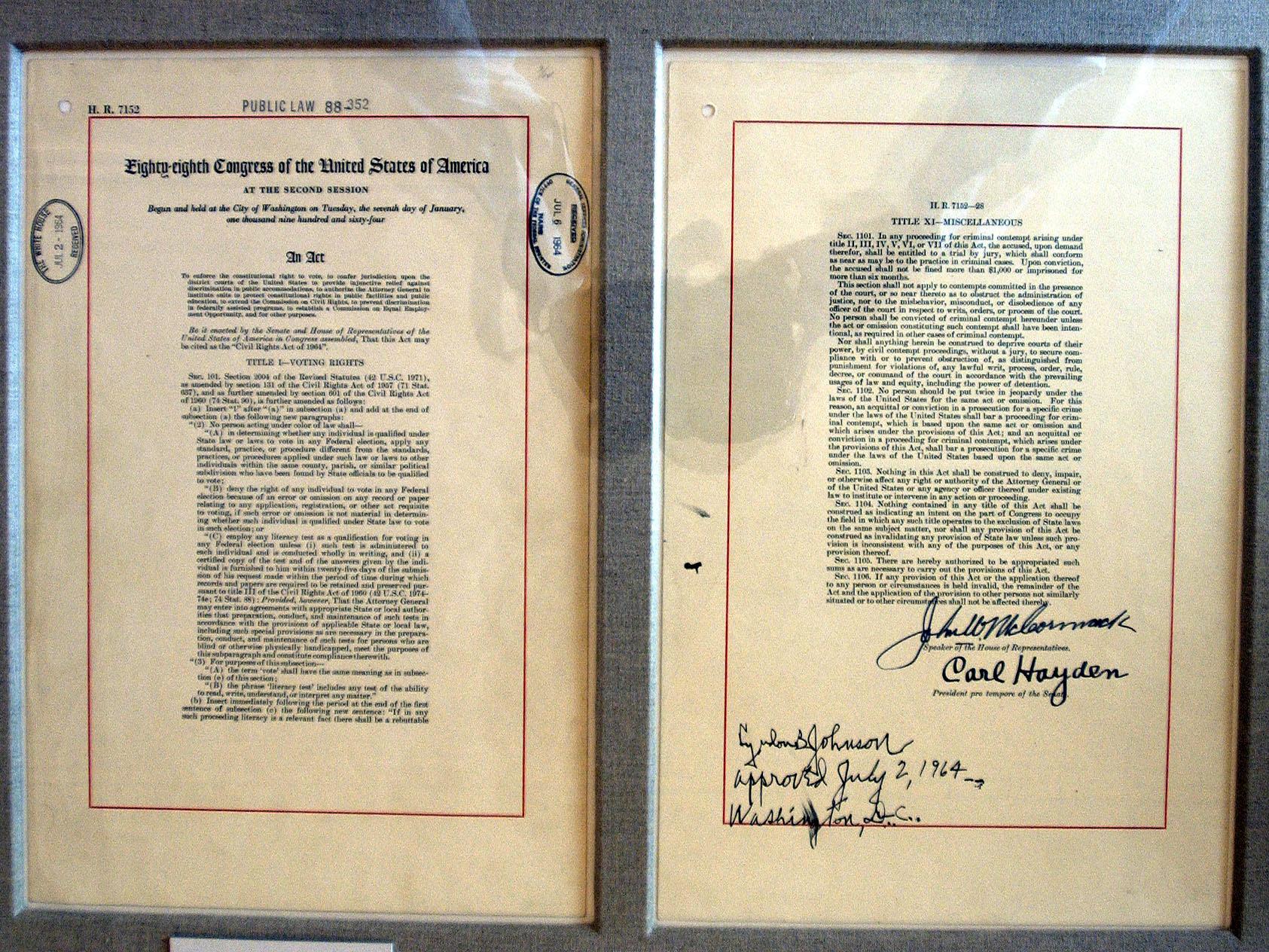Landmark US court ruling finds 1964 civil rights law protects LGBT employees from discrimination at work
Chicago Circuit Court of Appeals decision overturns decades of precedent and represents major legal victory for US gay rights movement

Your support helps us to tell the story
From reproductive rights to climate change to Big Tech, The Independent is on the ground when the story is developing. Whether it's investigating the financials of Elon Musk's pro-Trump PAC or producing our latest documentary, 'The A Word', which shines a light on the American women fighting for reproductive rights, we know how important it is to parse out the facts from the messaging.
At such a critical moment in US history, we need reporters on the ground. Your donation allows us to keep sending journalists to speak to both sides of the story.
The Independent is trusted by Americans across the entire political spectrum. And unlike many other quality news outlets, we choose not to lock Americans out of our reporting and analysis with paywalls. We believe quality journalism should be available to everyone, paid for by those who can afford it.
Your support makes all the difference.A US appeals court, for the first time ever, has ruled that federal civil rights law protects lesbian, gay, bisexual and transgender employees from discrimination in the workplace.
The ruling from the 7th US Circuit Court of Appeals in Chicago represents a major legal victory for the gay rights movement.
In its 8-3 decision, the court bucked decades of rulings that gay people are not protected by the milestone civil rights law, because they are not specifically mentioned in it.
“For many years, the courts of appeals of this country understood the prohibition against sex discrimination to exclude discrimination on the basis of a person's sexual orientation,” Chief Judge Diane Wood wrote for the majority. “We conclude today that discrimination on the basis of sexual orientation is a form of sex discrimination.”
The ruling also allows a lawsuit to go forward in Indiana, where plaintiff Kimberly Hively said she lost her community college teaching job because she is lesbian.
“I have been saying all this time that what happened to me wasn't right and was illegal,” Hively said in a statement released by the gay rights legal organisation Lambda Legal, which represents her.
In its decision to reinstate Hively's 2014 lawsuit, which was thrown out at the local level in Indiana, the Court of Appeals ruled that protections against sex discrimination in Title VII of the Civil Rights Act of 1964 protect people from job discrimination based on their sexual orientation.
In so doing, the full appeals court overruled a decision by a smaller panel of its judges to uphold the district court's decision in the college's favour.
To reach its conclusion, the court examined 20 years of rulings by the US Supreme Court on issues related to gay rights, including the high court's 2015 ruling that same-sex couples have a right to marry, Wood wrote.
The Supreme Court has not yet ruled on the question of whether the Civil Rights Act protects gays and lesbians, she wrote.
The three dissenting judges said the majority had inappropriately used its own power to change the civil rights law, which does not explicitly protect people on the basis of sexual orientation, and which for decades has been interpreted as excluding that protection.
“Today the court jettisons the prevailing interpretation and instals the polar opposite,” Judge Diane Sykes wrote in dissent.
In her lawsuit, Hively said that Ivy Tech Community College in South Bend passed her over for a permanent position and refused to renew her contract as an adjunct professor after school administrators learned she is a lesbian.
On Tuesday, Ivy Tech spokesman Jeff Fanter said the college had not done that.
“Ivy Tech Community College rejects discrimination of all types,” Fanter said in a statement emailed to Reuters. “Sexual orientation discrimination is specifically barred by our policies.”
The college would not ask the US Supreme Court to review the decision, Fanter said, but instead would argue in District Court that it had not discriminated against Hively as the lawsuit goes forward.
Reuters
Join our commenting forum
Join thought-provoking conversations, follow other Independent readers and see their replies
Comments